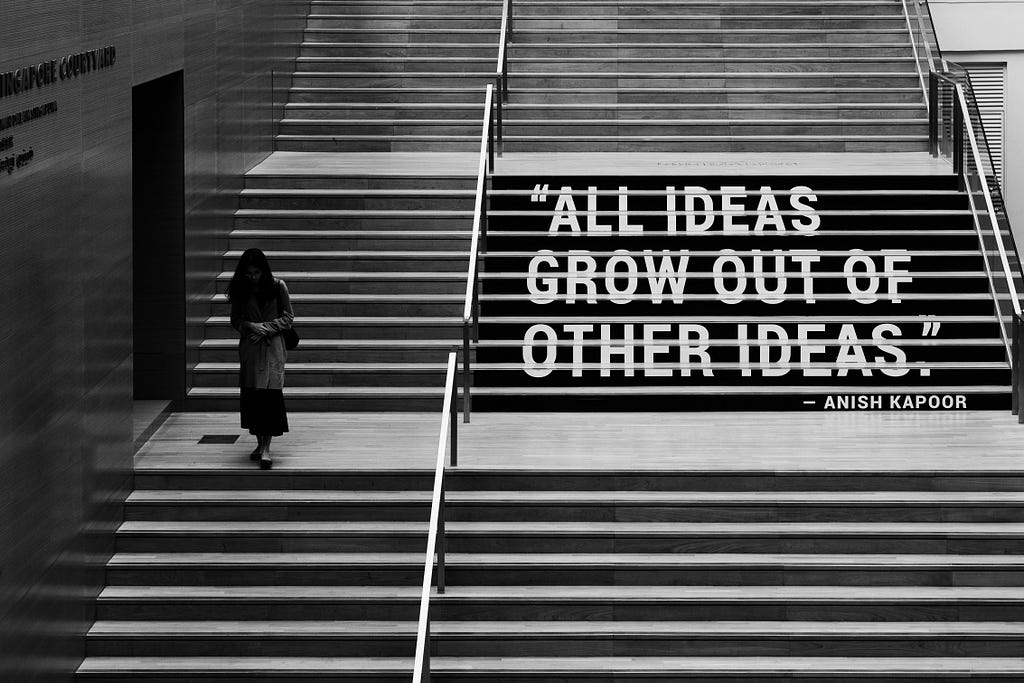Privacy settings
In order to be able to optimally design and improve the website, we use cookies. We divide these into technically necessary cookies and statistics cookies. More detailed information is available in our privacy policy.
10.06.2021 Fabian Roschig

Learn how to guide your team to impactful, actionable ideas.

Facilitating an ideation session requires a balance of structure, creativity, and empathy. Here’s a guide to help you lead a productive session, ensuring participants stay engaged and ideas flow freely.
This post is part of our ideation series. If you’re looking to dive deeper into what ideation is, its key benefits, when to use it, and how to set up your sessions for success, be sure to check out the three previous posts where we covered the essentials of ideation, preparation steps, and planning strategies 👇🏼
Stay ahead in innovation! Sign up now for exclusive insights on breakthrough capabilities and proven strategies to de-risk your innovation process.
👉🏼📩 Join today and get all future posts delivered right to your inbox!
In any ideation session, participants bring diverse perspectives, and it’s essential to manage these dynamics with empathy. If hierarchies exist, people might be eager to stand out, but as a facilitator, your role is to listen attentively and gently guide discussions toward the workshop’s goals without pushing your opinions.
Time management is key. Assign time limits for each exercise and stick to them. Use the 80/20 rule — focus on rapid execution rather than perfection. In sprints, getting things done is better than obsessing over every detail.
While managing time is crucial, it’s equally important to allow conversations to breathe. Participants need time to reflect on ideas and engage in meaningful discussion. Build in small gaps between sessions for this purpose.
Frequent, shorter breaks help maintain energy and focus. Make sure participants know the break schedule so they can plan their meals, coffee, and quick email checks.
Whether it’s a new team or a recurring workshop, introduce yourself and the process. Outline the two phases: the divergence phase (generating ideas) and the convergence phase (narrowing down to the best ideas). Clarify the objectives and the agenda, so everyone is aligned.
In today’s remote world, tech glitches are a frequent disruption. Ensure that technical issues, such as connectivity or unfamiliarity with digital tools, are sorted before starting. Provide an onboarding session where participants can practice using the digital whiteboard or collaboration tools.
Start with icebreakers to create a relaxed atmosphere and build rapport among participants. These activities foster a judgment-free zone, essential for creativity. Choose virtual icebreakers that best suit the group dynamics.
A successful ideation session revolves around solving real user problems. Take time to dive deeper into user needs — functional, emotional, and social. Even if the problem statement is well-defined, this step brings clarity and sets the right tone for the workshop.
Encourage participants to prioritize quantity over quality in this stage. Use virtual voting dots to let participants highlight the parts of ideas they find promising. This initial feedback will guide future refinement.
Once ideas are generated, move to concept card development. This exercise forces participants to think through the different dimensions of their ideas, such as the problem they’re solving, potential features, and target users.

Have participants pitch their refined concepts to the group. Afterward, use another round of dot voting to select the most promising concept.
At the end of the session, recap the outcomes and outline the next steps, such as prototyping or testing. Remind participants that the process is iterative — if testing reveals issues, it may lead to another ideation round.
Running a successful ideation session requires preparation, empathy, and clear facilitation. Stick to timeboxes, resolve tech issues early, and ensure the atmosphere fosters creativity. The process may involve multiple iterations, but trust it — diverging and converging ideas will ultimately lead to innovative solutions.
If this article sparked some thoughts and you’re:
I can help you navigate this journey. Let’s work together to shape the future of your business. Get in touch with me here.
Curious to hear your challenges and ideas.
Book your free 30-minute call here
Stay ahead in innovation! Sign up now for exclusive insights on breakthrough capabilities and proven strategies to de-risk your innovation process.
👉🏼📩 Join today and get all future posts delivered right to your inbox!

Hi, my name is Fabian Roschig.
With a background that blends entrepreneurial experience and corporate innovation, I’ve had the opportunity to found and lead two startups, manage a corporate incubator, and support innovation initiatives across both SMEs and Fortune 500 companies.
I’m not a traditional consultant — I’m an entrepreneur and operator, 100% focused on execution. I bring a startup mindset to every project, ensuring that we’re not just talking about ideas but actually making them happen, often stepping in as interim project leader to guide teams directly.
My goal is to build lasting capabilities within your team, not dependencies. While I’m committed to being a long-term partner, I also aim to empower your teams to innovate independently.
I’m now focused on combining my business experience with advanced AI strategies to help businesses innovate more efficiently and stay ahead of the curve. Together, we’ll turn your ideas into practical, market-ready solutions that drive real business impact.
I’m excited to learn about your challenges and explore how I can support you — whether through workshops, consulting, interim leadership, or serving as a sounding board for your growth initiatives. I’d love to connect and get to know you better!
—
Originally published at http://fabianroschig.com
How to Lead an Ideation Session That Delivers Results. was originally published in Fabian Roschig — Innovation Advisory on Medium, where people are continuing the conversation by highlighting and responding to this story.